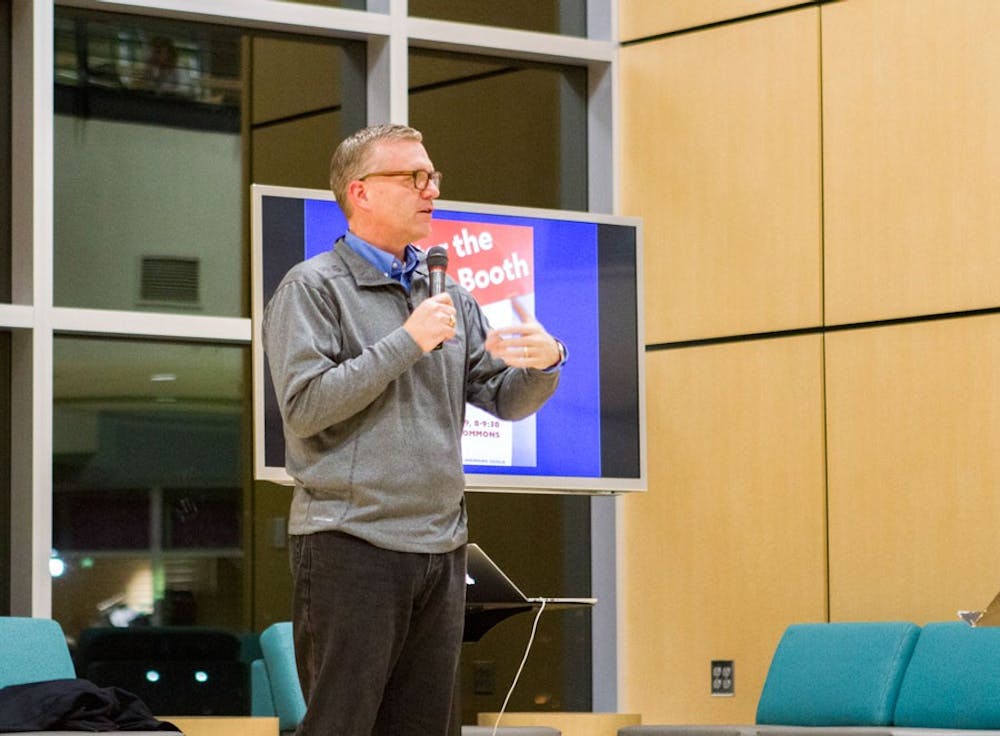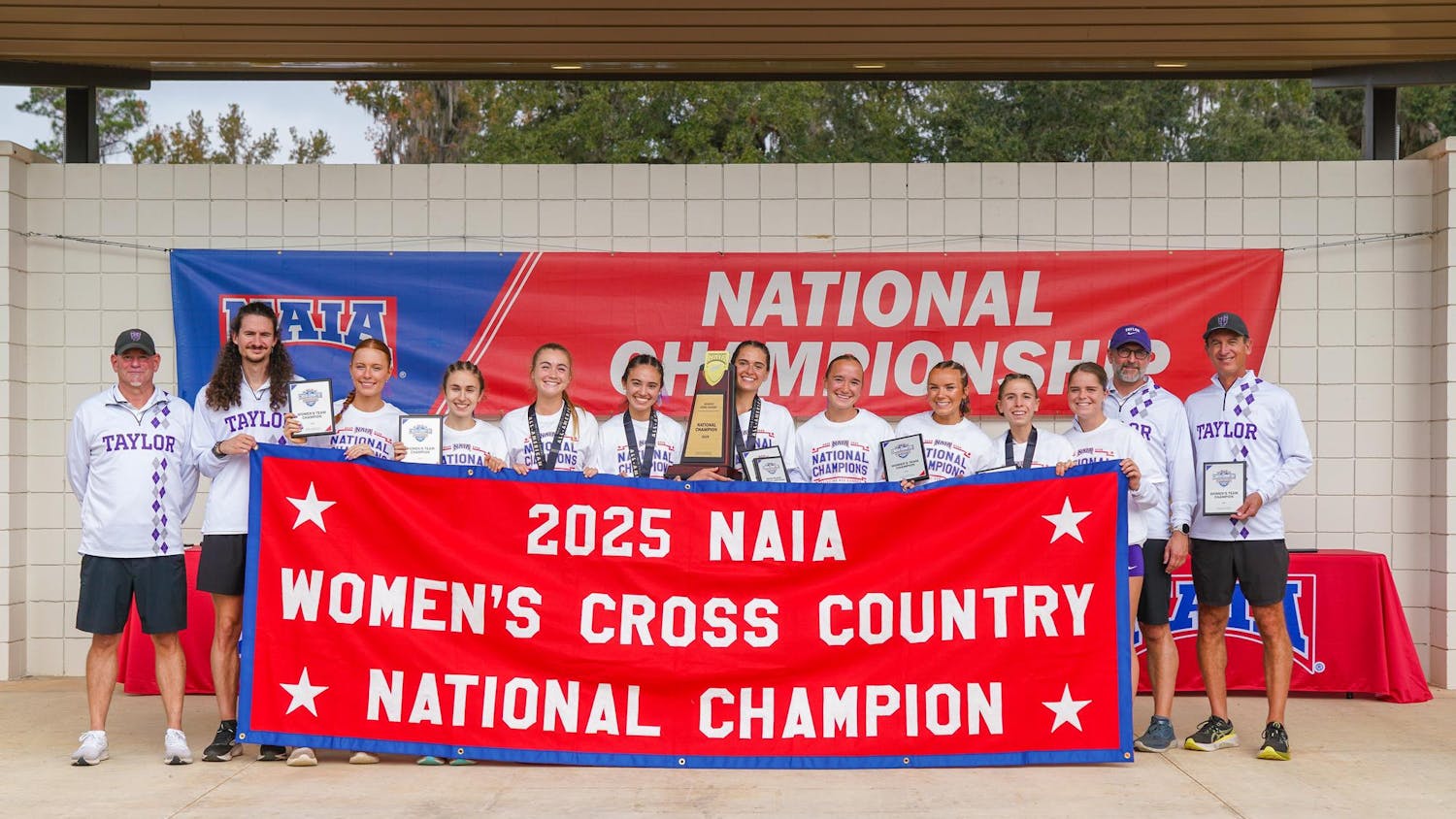By Katherine Yeager | Echo
On Sunday, November 13, Taylor University Provost Jeffery Moshier requested that the following statement be included in this article: "Taylor University is a place where we continually challenge each other to grow together in community and in the image of Christ, and where the welfare of every one of our students is our first and greatest concern," said Provost Jeffrey Moshier. "While we have not yet been able to verify all of the incidences reported in The Echo, we are conducting investigations into these allegations. Actions that marginalize or threaten the well-being of any member of our community run contrary to what it means to be a member of Taylor University and are not representative of the students, faculty and staff of Taylor."
*name changed upon request
Students and faculty gathered in Zurcher Commons for "After the Voting Booth," a post-election conversation led by Michael Hammond ('92), dean of the school of liberal arts. Groups circled around tables where attendees engaged in dialogue regarding the election, its aftermath and the state of the nation. Hammond discussed the idea of "Taylor at her best" in light of the election season.
The crowd represented a variety of backgrounds, both politically and culturally, bringing well-rounded perspectives and narrative variety to the conversation. Many from both parties expressed fear and frustration.
At a Thursday morning meeting, faculty were informed that some students ran down the hallways of residence halls waving Confederate flags.
Junior Gabriela Ortiz and sophomore Genevieve,* both international students, felt hurt after comments they heard or received following the election announcement.
Several students joked with Ortiz regarding comments made by the President-elect. "I have heard bad jokes about me being kicked out of the country because a racist, disrespectful person won the elections and is now the face and leader of the most powerful country in the world," Ortiz said.
Genevieve received an intimidating series of Snapchat videos from a Taylor student. The videos featured a student yelling Trump's name along with a series of expletives and slurs, advising viewers to give up and side with the President-elect.
The sender of the Snapchat message was not a close friend of Genevieve's; she had never received a message from the student before.
Genevieve perceived the message as an intentional threat, feeling scared and hurt after Election Day. On Wednesday afternoon, however, she received a comforting email from a professor. Genevieve said this message made her feel safer, knowing she had advocates in her professors, close friends and God.
Ortiz felt similarly. As a Latina student, Ortiz has never felt different in a negative way at Taylor. She feels welcomed and loved by the Taylor community but recognizes the election has revealed another side of normally peaceful people.

Sophomore Claire Bokma hopes students continue listening actively, educating themselves in to see through others' eyes.
Hammond encouraged creating space for boundary disagreement, a disagreement using convicted civility and grace to listen, a trait he hopes will sharpen students as they process their feelings on the election's outcome.
Hammond called all citizens, regardless of whom they voted for, to hold the President-elect accountable. He asked the crowd to consider both sides of incivility: arrogance and selfish withdrawal.
The Gospel, Hammond believes, is big enough to handle rage within Taylor's community.
"Taylor at its best means my disagreement with you doesn't mean I disagree with you and shove you away," Hammond said. "It means I disagree with you, and I pull you close so I can hear you more deeply and widely."
Hammond encouraged those gathered at the event to love others enough to listen. Responding to the hurt of some students and faculty over the election results, Hammond encouraged them to use the Gospel to understand hurt on the other side.
Not speaking up, Hammond believes, is another form of incivility. He encourages students not to disconnect but to exchange ideas.
"Do we love each other enough to sit with someone who we don't agree with and listen to their point of view, maybe not realistically thinking it will change our mind but giving them the respect (they) deserve?" Hammond asked.
The election is over, but conversations continue to broadcast the voices and narratives of citizens who seek to hold the government accountable and ensure their voices are heard.





